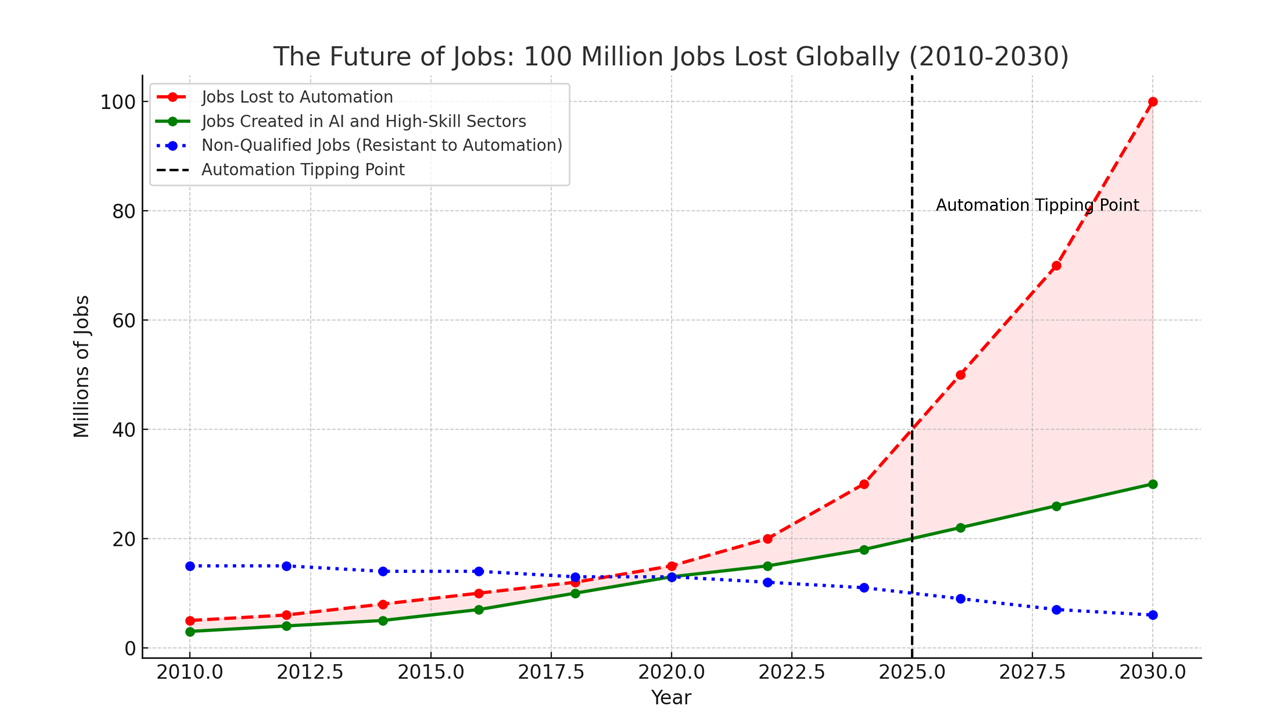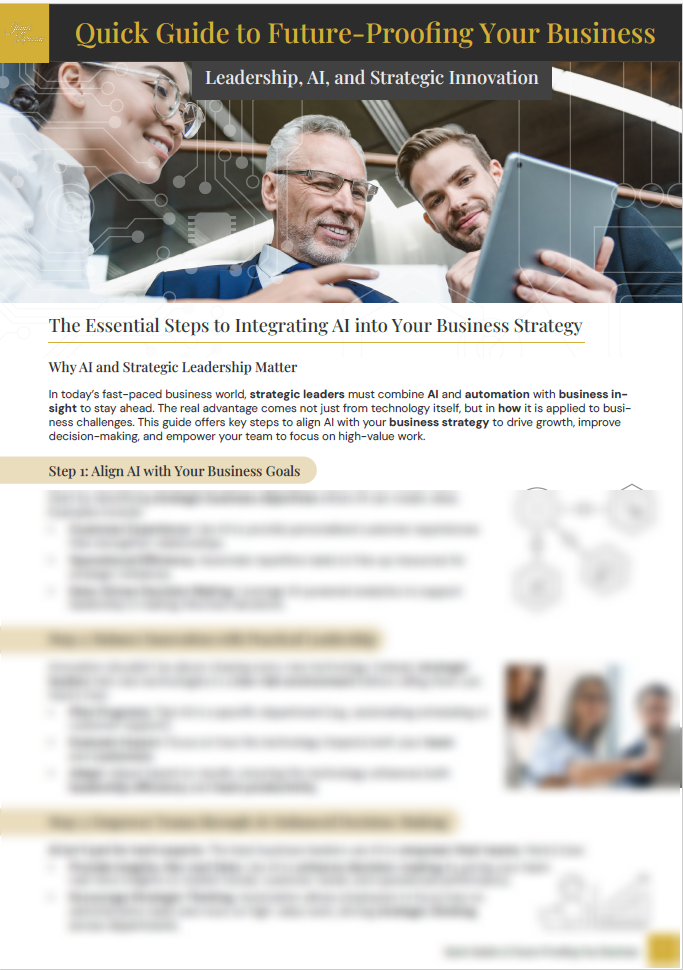Does anyone truly understand what automation is doing to jobs? It feels like we’re repeating history. Just as machines replaced workers during the industrial revolution, automation is sweeping across industries today, but this time, the impact could be far larger—and far more personal. What about the people?
We’ve been here before. When Henry Ford introduced the assembly line, it revolutionized manufacturing, but it also turned workers into replaceable cogs. Now, automation is poised to take this even further, pushing entire industries to the brink of being fully automated. And no one seems to be asking: What happens to millions of workers left behind?

In the 1920s, the famous Hawthorne Experiments led by Elton Mayo revealed something crucial: when workers feel valued, they perform better. But in today’s race to automate, we’re overlooking that simple truth. As we glorify efficiency and innovation, we’re leaving behind the people whose livelihoods are being replaced by machines. We’re losing sight of the fact that human value still matters.
For years, we’ve celebrated the rise of AI and robotics without truly considering the human cost. Sure, progress is essential, but when you see the job market shifting so drastically, it’s hard not to feel uneasy. We’re racing ahead with technology, but what about the jobs that are disappearing? What happens to the workers who aren’t part of this new AI-driven economy?
A Divide is Growing—Skilled vs. Unskilled
We’re heading toward a workforce where only those with highly technical skills can survive. Jobs in retail, transportation, and manufacturing—once the bedrock of stability for millions—are vanishing. While automation does create new roles, they’re almost always reserved for the highly educated. The gap between the skilled and unskilled is widening into a chasm.
But what about the jobs that require a human touch? Roles in healthcare, personal care, and creative industries—where machines can’t replace empathy or creativity—are being overlooked. We’re pouring resources into automating everything, but we seem to have forgotten that human value still has a place in our future.
The Real Numbers are Bleak—100 Million Jobs at Risk
When early reports like PwC’s “Will Robots Steal Our Jobs?” projected 40 million jobs lost to automation by 2030, it seemed like a staggering number. But today, with the rapid advancements in AI, GPT-4, and self-driving technologies, those estimates feel outdated. We’re now facing the potential loss of 100 million jobs globally.
Automation will affect every industry—from accounting, where AI can handle everything from invoicing to bookkeeping, to logistics, where driverless lorries and automated warehouses are set to make human workers obsolete.
Imagine building approvals becoming fully automated: AI systems approving designs, checking compliance, and processing permits in days instead of months. Whole administrative departments could be eliminated. Scania is already testing driverless lorry trains, and in a few short years, fleets of trucks could drive, load, and unload without a single human worker. This doesn’t just affect truck drivers, but everyone in the supply chain—from warehouses to retail distributors.

But it’s not just blue-collar jobs. White-collar professions like finance and law are also at risk. AI can already interpret contracts, scan documents, and process legal paperwork faster than any team of paralegals. In accounting, machines are already handling invoicing, payroll, and even audits.
Farming is Not Safe Either
Even farming, one of the oldest human professions, is being transformed. AI and robotics are driving precision farming, where planting, fertilizing, and harvesting are becoming fully automated. Jobs that have existed for centuries could disappear almost overnight.
A Future of Automation—Is Anyone Ready?
The truth is, we’re just seeing the tip of the iceberg. What lies beneath could reshape the global workforce in ways we can’t even predict. The technology is here, and its disruptive force will soon affect every sector. But are we ready for this?
What about your job? Are you prepared for what happens next?A Future of Automation—Is Anyone Ready?
The truth is, we’re just seeing the tip of the iceberg. What lies beneath will reshape the global workforce in ways that are almost unimaginable. The technology is here, and its disruptive force will soon ripple through every sector. But are we really ready for this?
While we celebrate the rise of automation, there’s a harsh reality: 100 million jobs are at risk, and this is not just a blue-collar issue anymore. Leaders at every level need to act fast. It’s no longer about if automation will change the workforce—it’s about how fast you can adapt to survive.
Here’s What You Need to Ask Yourself:
- Is your job safe from automation? Have you acquired the skills that the AI-driven future demands?
- How will you stay ahead? What are you doing today to ensure you’ll be relevant tomorrow?
- Are you a leader who understands AI? If you’re not integrating AI into your decision-making process, you’re falling behind. The question isn’t whether AI will replace you—the question is, how soon?
Now is the time to take control. Whether you’re in management, finance, or logistics, you need to invest in the future. Automation is coming.
Will you be left behind, or will you lead the charge?
This article builds on my article Automation


